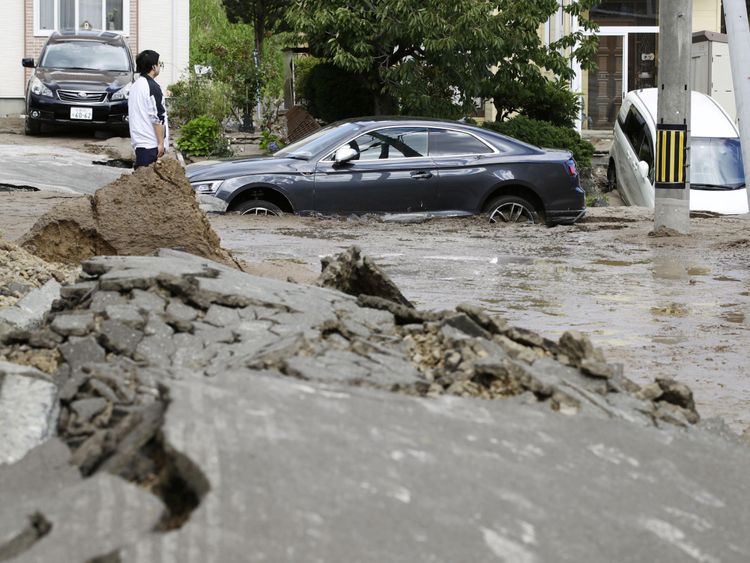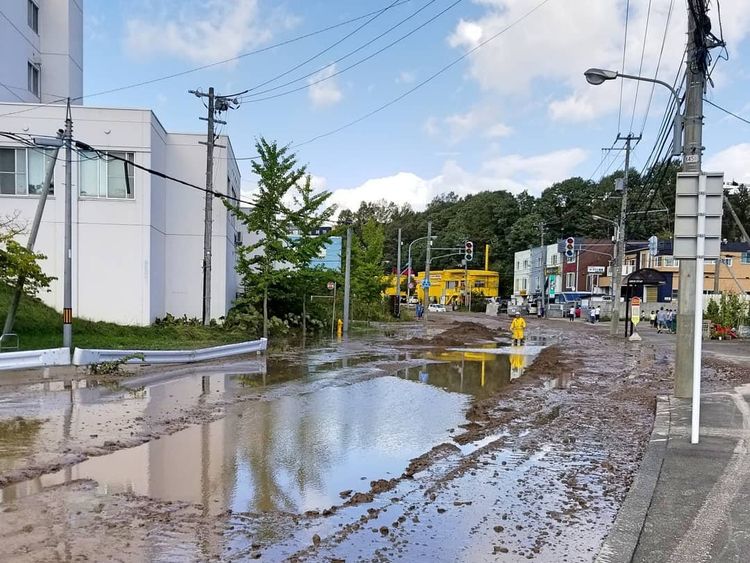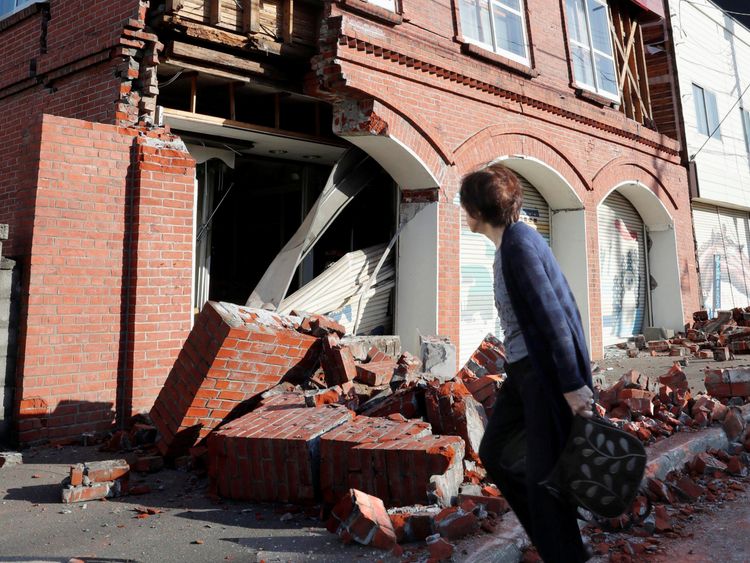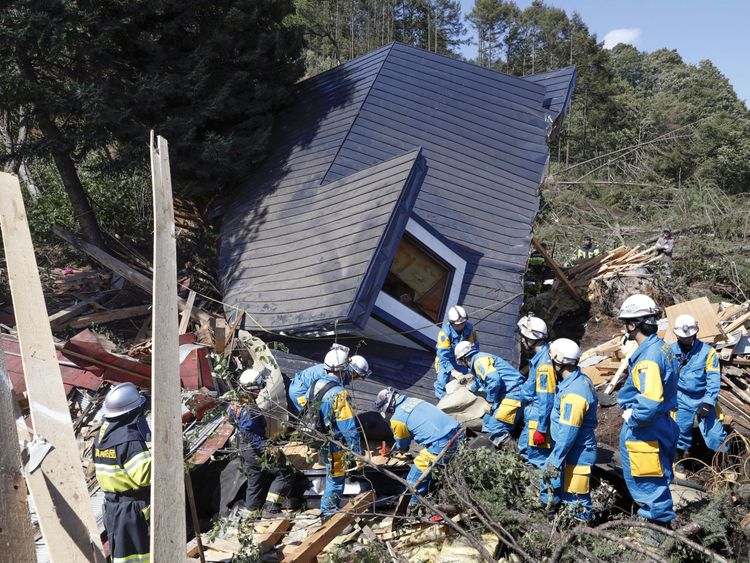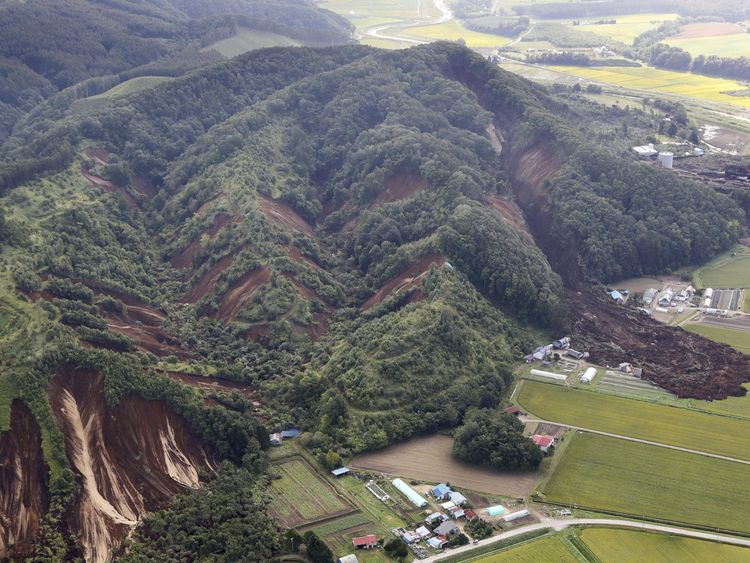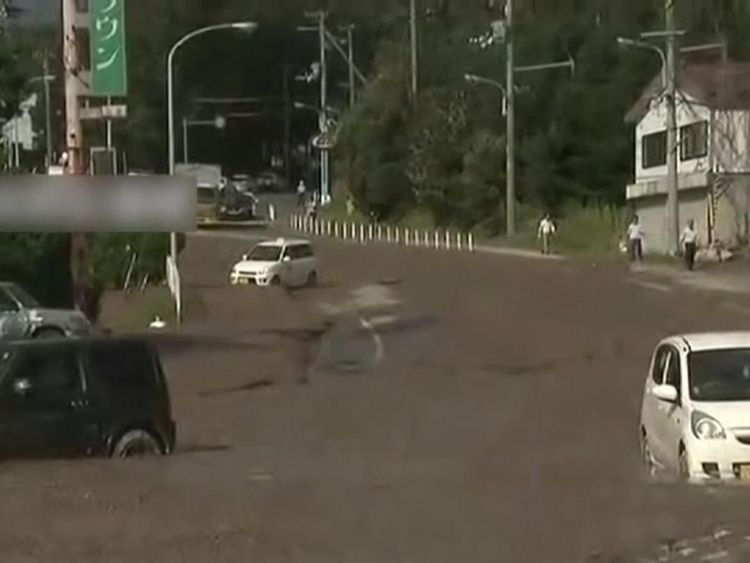At least seven people have died and dozens are trapped in their homes after a powerful earthquake hit the Japanese island of Hokkaido.
The quake, which struck with a magnitude 6.7 in the early hours of Thursday morning, has left almost three million households without electricity.
The island’s nuclear power plant, which was offline, switched to a back-up generator. Officials say there is no sign of abnormal radiation.
It comes just a day after a typhoon caused heavy flooding in western Japan, killing 10 people and leaving the main airport near Osaka and Kobe closed after a tanker rammed a bridge connecting the facility to the mainland.
Japan has also recently seen devastating floods from torrential rains in Hiroshima and deadly hot temperatures across the country.
Chief cabinet secretary Yoshihide Suga told a news conference seven people had been confirmed dead following the latest disaster.
Mountainsides collapsed in the town of Atsuma, crushing homes and farm buildings, and it is feared many people are trapped.
Rescuers have been using shovels to sift through tons of soil, rocks and timber in a bid to find survivors.
Officials say about 30 people are unaccounted for.
Airports and many roads on the island are closed and trains have stopped because of the power cuts.
Prime Minister Shinzo Abe said that up to 25,000 troops and other personnel would be dispatched to Hokkaido to help with rescue operations.
Roads and buildings have been damaged in the prefectural capital of Sapporo, a city of 1.9 million.
Economy, trade and industry minister Hiroshige Seko said the extensive power outage was caused by an emergency shutdown of the main thermal power plant at Tomato Atsuma, which supplies half of Hokkaido’s electricity.
It had been hoped that power would be restored in hours and some electricity gradually returned but damage to generators at the plant means it may take more than a week before it is back up, Mr Seko said.
The minister said several other thermal and hydroelectric plants were being started up but it would be some time before power was fully restored.
Andrew DeWit, professor of energy policy at Rikkyo University in Tokyo, said: “Nationwide, they have been trying to bolster power systems by linking these fairly Balkanized domains, but it’s not as easy as it sounds.
“It requires equipment like transformers that is quite expensive and tailor-made.”


